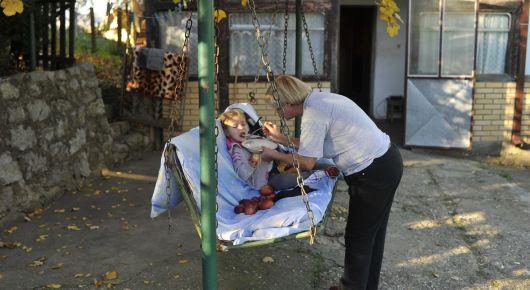Social protection can improve the resiliency of rural populations says new FAO report

In the last decade, rural communities in Europe and Central Asia have been increasingly exposed to multiple risks, increasing their vulnerability to poverty and other shocks. Recognizing the importance of social protection systems in addressing these challenges, FAO released a regional report that analyzes the specific risks and vulnerabilities faced by rural populations.
The report Improving social protection for rural populations in Europe and Central Asia not only highlights critical gaps in social protection. It details how social protection programmes should be designed in order to acheive a more inclusive rural transformation, improved nutrition and dietary outcomes, women’s empowerment, and other social issues, including child labour.
Currently, however, almost half of the rural population in Europe and Central Asia do not receive any social protection benefits, while they are exposed to multiple risks. These can come in the form of natural disasters, environmental degradation, climate change, or lack of decent employment. The COVID-19 pandemic reduced remittance flows held back domestic economic activity and disrupted international trade. The ongoing war in Ukraine has exacerbatedto a deteriorating food insecurity and rural livelihoods situation in the region. The impact of these shocks has been increased multidimensional poverty for the region’s rural communities.
Comprehensive social protection systems can help tackle these risks and challenges. FAO is committed to supporting the economies across Europe and Central Asia to expand the coverage, adequacy, and comprehensiveness of social protection systems for rural populations to contribute to achieving the Sustainable Development Goals resulting in better production, better nutrition, better environment and better life. The report identifies entry points for FAO’s work in promoting social protecting schemes.
In his foreword to the report, Raimund Jehle, the Regional Programme Leader for Europe and Central Asia, writes that the report is expected to “feed into awareness raising and advocacy to promote coherence between social protection and other policies in the region, especially agrifood policies, to increase the effectiveness of national social protection systems and their capacity to support rural populations to exit from poverty over the longer term.”
The publication is tailored to an audience of development practitioners, policymakers, analysts, and civil society and private sector actors. A policy brief highlighting the key findings and recommendations will be published soon to accompany the report.
12 October 2022, Budapest, Hungary
